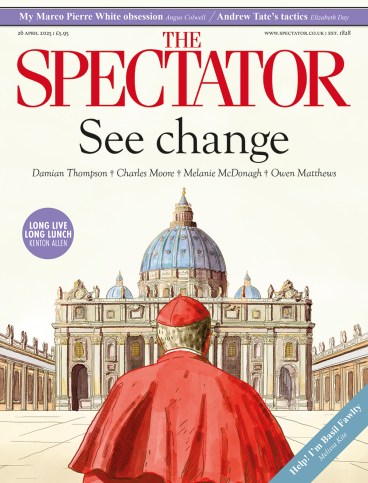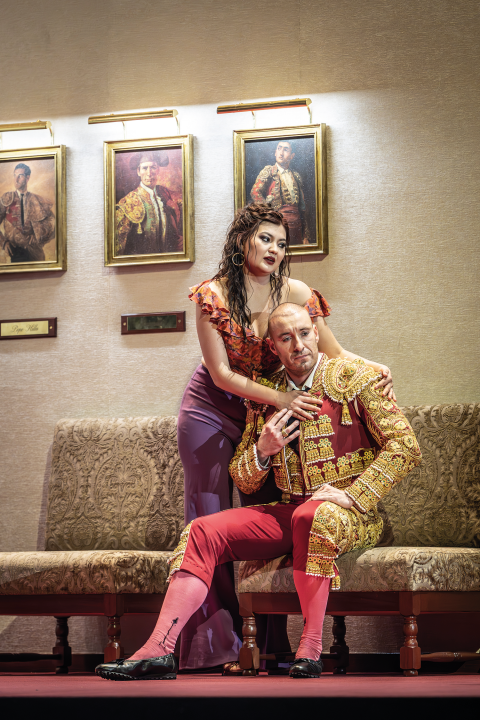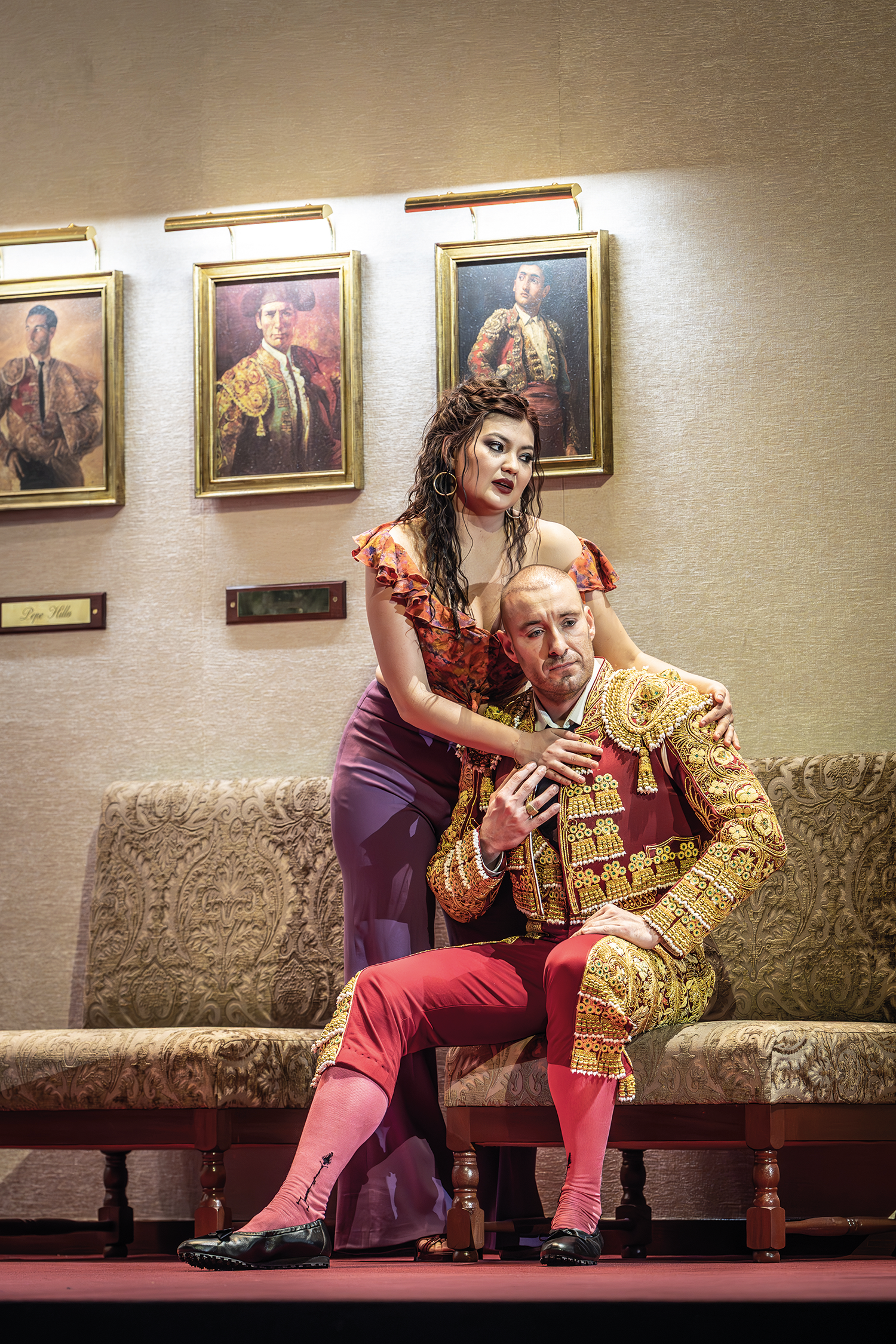
It’s funny what you see at orchestral concerts. See, that is, not just hear. If you weren’t in the hall during Poulenc’s Stabat Mater would you even realise that the tuba uses a mute in the final chord? Visually, it’s hard to miss – the thing’s huge, whether standing on the floor or being heaved into the instrument’s bell. The sound? A muffled, matte effect, quite unlike the usual nasal buzz of muted brass. But how droll of Poulenc, and how utterly in keeping with the raffish, trash-fabulous aesthetic of Gallic brass writing: a world where no symphony is complete without a pair of honking cornets à pistons.
And how perfect, too, for this Stabat Mater, a fervent choral work that sounds nonetheless as if it’s about to break into giggles. What me, Francis Poulenc, it seems to say – writing an impassioned meditation on the death of Christ? With my reputation? Poulenc was a witty, sensual party animal before his reconversion to Catholicism (it came in a split second in 1936, at the shrine of the Black Virgin of Rocamadour), and he saw no reason to change his style afterwards. He said that his soul craved ‘an austerity that smells of orange blossom or jasmine’.
So there it is in the music of the Stabat Mater: a sweet, blowsy sort of perfume that keeps wafting across the tearful laments and the stylised processionals. The woodwinds sigh with longing, the brass flash a bit of thigh (blink and you miss it; they’re good boys really). Above it all, the chorus projects a fierce halo of sound. There’s no question that you’re in the presence of something sacred and terrible. It’s just that – as Poulenc saw things – there’s no need to be uptight about it.
If there was one flaw in this performance by the City of Birmingham Symphony Orchestra and Chorus, conducted by Kazuki Yamada and supplemented by the Tasmanian Symphony Orchestra Chorus, perhaps it was a little too classy – too much the sculpted marble monument, rather than the work of a composer whom one French critic described as ‘part monk, part hooligan’. The sonic intensity, though, and the grandeur of the big climaxes? That was all there, with the solo voice of Eleanor Lyons flaring like a siren up front. Yamada is a lively, diminutive presence on the podium; so liked by his Birmingham public that he gets cheers and whoops just for walking on stage.
But he’s a real orchestral animal, and his ability to get his players to throw their whole, massive weight into a single incandescent gesture is something new in Birmingham; something we didn’t hear in quite the same way under Grazinyte-Tyla, Nelsons, Oramo or even the sainted Sir Simon. Possibly Yamada doesn’t make use of the full dynamic range available to him in Symphony Hall – the quieter end, anyway – though in Ravel’s two Daphnis et Chloé suites, he showed that what his pianissimos lack in absolute softness, they gain in concentration. It’s a tactile, focused sound.
Yamada’s bond with his orchestra, meanwhile, is very evident. Earlier, Fazil Say had been the soloist in a performance of Ravel’s G major Piano Concerto (the one for both hands) that leaned hard into the work’s jazz influences. The clarinets and bassoons gave wailing bluesy cries, and their colleagues shared knowing smiles. Say motored brilliantly on – Ravel as vorticist, spiky and off-centre – stitching sequins into the texture while Yamada and the string players wafted smoke and incense (a particularly languorous horn solo) around him. For all this freedom and atmosphere, Yamada’s grip never let up. The finale was a rolling build-up of electricity until, in a flash, it was gone. The audience (the hall was full, by the way) roared.

Event
Spectator Writers’ Dinner with Richard Bratby
The Royal Opera has revived Damiano Michieletto’s barely year-old production of Carmen. Clearly they feel they have a winner on their hands and although this Franco-era staging has nothing very new to say, they’re probably right. I was too harsh on it last year. It’s a decent, clear bit of storytelling, basically faithful to the work (apart from the ending, which no modern director gets right) and filled with little Wes Andersony touches which – why deny it? – the audience seems to love.
Aigul Akhmetshina was Carmen again – pleading ill health, though she smouldered so hard that you couldn’t tell – and Freddie de Tommaso was a forceful, blocky Don José. For once, though, there was an Escamillo (Lukasz Golinski) with real vocal charisma and a touching, impulsive Micaela (Yaritza Veliz) who’s capable of giving Carmen a proper fight. On this occasion, Mark Elder conducted, charging everything with tension and finding new colours in even this most familiar of scores. It’s been said before, but it’s true: the greatest MD the Royal Opera never had.








Comments